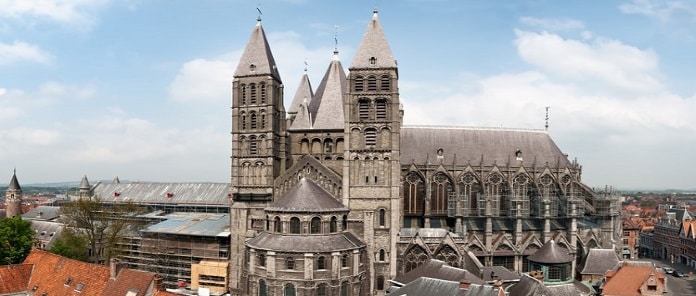Belgium may be small but it’s packed full of sights. Bruges is the major highlight here with its perfectly-preserved medieval streets rimming tranquil canals that lure flocks of travelers each year. But plenty of other towns in the country – particularly Ghent and Mechelen – retain excellent architectural examples from the Middle Ages as well. This small nation has been right at the forefront of Europe’s history with many of the continent’s most important events played out across its countryside.
It was in Belgium that Napoleon met his match at the battle of Waterloo, and during both the First and Second World Wars, Belgium found itself thrust into the frontline. The World War I battlefields of Ypres are now important pilgrimage sites that thousands visit each year to pay their respects. Whether you’re here for the ancient or modern history, Belgium doesn’t disappoint and provides a huge chunk of European heritage within a bite-sized piece of land.
1. Belfry of Bruges
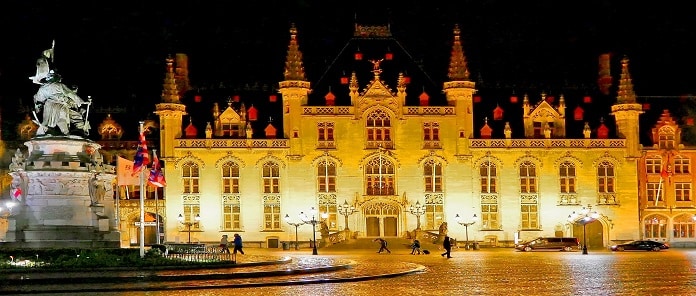
The most recognizable sight in Belgium is the beautiful belfry and Halle, which dominates the main square in Bruges. Dating from the medieval era, this impressive building once functioned as the main town market hall and has been wonderfully preserved allowing visitors a real taste of the architectural might of the Middle Ages. For most travelers to Belgium, a hike up the 366 winding and narrow steps of the belfry is a must-do activity while in Bruges. Once at the top, the views of church spires and steeple-roofs provide one of the country’s most well-known panoramas.
2. The Battlefields of Flanders
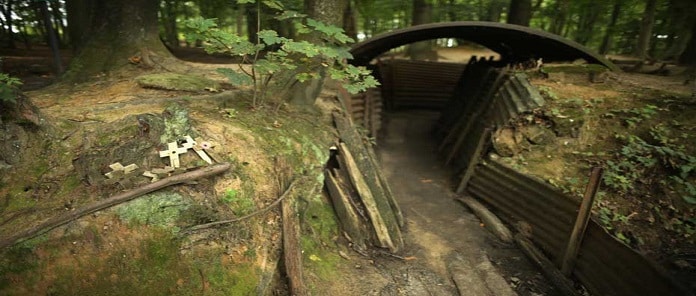
For many visitors, Belgium’s role on the front line of World War I, and in particular the Battlefields of Flanders around Ypres are the main reason for a journey here. Not only important historically, the battlefields are a major pilgrimage site. The preserved trenches run for kilometers around the town of Ypres, while this area is also scattered with vast cemeteries for the thousands of soldiers who died here. The Tyne Cot Cemetery (British) and Langemark’s German War Cemetery are both solemn reminders of the brutal fighting that took place here during the Great War.
3. Meuse Valley
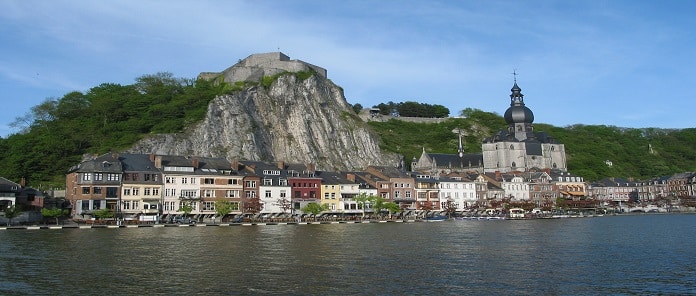
The Meuse Valley, in the south of the country, is one of the best places to get a feel for Belgium’s lush countryside. This is the perfect opportunity to take a trip along the river watching the beautiful scenery unfurl; dense forests are interspersed with cutesy towns backed by limestone cliffs. In particular, the towns of Namur and Dinant act as a gateway to this region, which has a host of hiking and cycling trails for travelers who want to add some activities into their holiday. Both towns boast craggy cliff top citadels as well as a clutch of other historic sights, but the real highlight in this area is the scenery itself.
4. Semois Valley
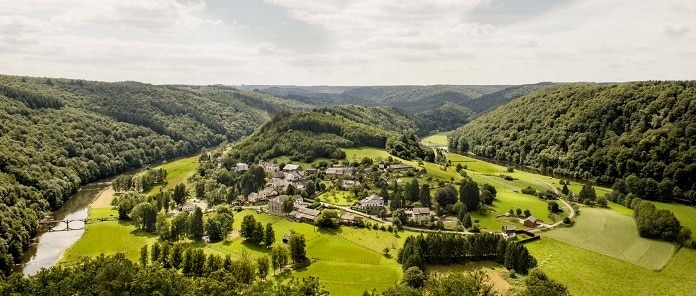
The lush Semois Valley is the perfect antidote to historic rambling amid Belgium’s cities and towns. Here, in the southeast of the country, the Semois River cuts through thick forest-clad hills and is prime hiking territory. For those who prefer a less taxing way of seeing this landscape, a riverboat trip through the area is an excellent alternative. The Semois Valley offers a slice of Belgium’s scenery at its most viscerally beautiful and is a nature-lover’s delight, particularly during spring when the wildflowers bloom.
5. Mechelen Old Town
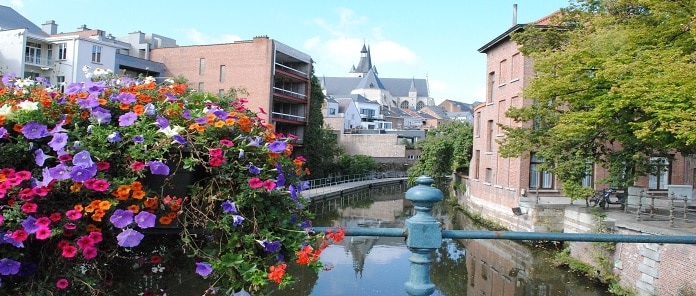
Its monuments may not be as famous as those in Bruges but Mechelen’s old town area is a great place to capture a sense of medieval Belgium with plenty of gabled architecture and fine old buildings still in situ. The central Grote Markt is bordered by some exceptionally fine buildings including the Town Hall and Lakenhall, while the impressive Sint-Rombouts Cathedral with its tall clock tower rises up just behind. Away from the main square, a stroll through the center will also reveal plenty of typical guild house architecture that history fans are sure to want to see.
6. Waterloo
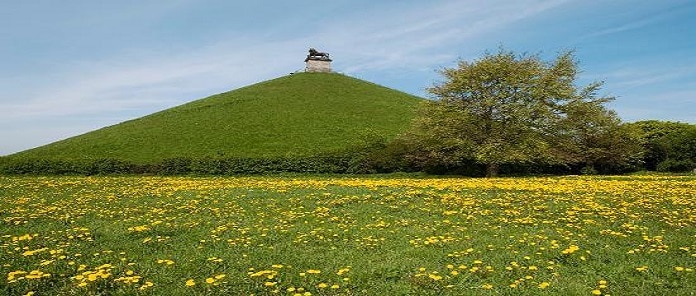
The place where Napoleon was defeated in the famous battle. Today, the countryside where the battle once roared is a bucolic landscape of agricultural fields, but an artificial hill rises up from the surrounding flatlands with a memorial lion sculpture atop the summit to commemorate the day when Napoleon’s army was finally stopped. From the top, there are excellent views across the countryside. For anyone interested in the history of Belgium and of greater Europe, Waterloo remains an important stop on the itinerary.
7. Basilica of the Holy Blood
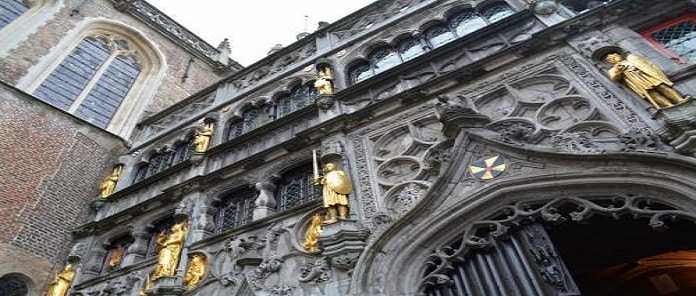
If you’re only going to visit one church in Bruges make it this one. The Basilica of the Holy Blood is not only impressive for its blending of Romanesque and late Gothic architecture but also for the sacred relic kept inside. The upper chapel is home to the famous vial for which the church takes its name; said to contain a drop of Jesus Christ’s blood that was brought back to Belgium after the Second Crusade. The interior of the church is a dazzling riot of gild work that was completed in the 16th century and provides ample reason for a visit even if you’re not interested in holy relics.
8. Grand Place, Antwerp
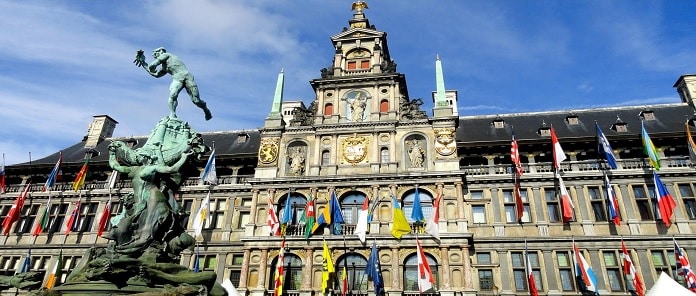
Right in the core of Antwerp, sits the town’s wonderful Grand Place (also known as the Grote Markt), which contains some of Belgium’s finest examples of guild house architecture with their typical steeple-roofed shape. The Town Hall here is a well-preserved example of 16th-century construction, and the interior is worth viewing for its collection of paintings that show Antwerp’s history. The guild houses that still rim the plaza are the major reason to visit the Grote Markt though. Among the best facades are the Coopers’ House and Grocers’ House, but all of them are well-preserved examples of this Belgian-style of architecture.
9. Cathedral of Saint Bavo
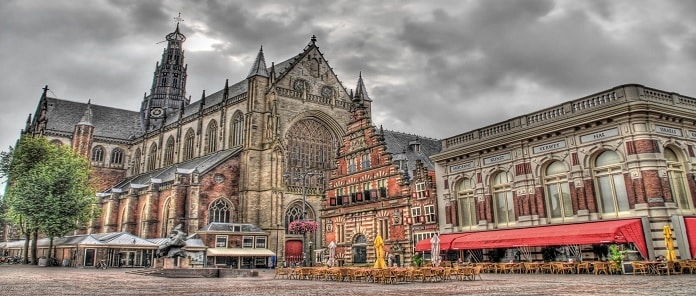
This majestic cathedral with its high Gothic choir and Romanesque crypt showcases the best of religious architecture in Belgium and is Ghent’s most outstanding tourist attraction. Although the soaring building, with its harmonious stained glass windows, is a highlight in itself, most people come here to see the famous artwork that graces the interior; specifically the Flemish masterpiece known as The Altar of Ghent. Once you’ve viewed the painting though, don’t miss the mammoth crypt under the cathedral, which contains important tombs and some beautiful wall paintings.
10. Ghent’s Gravensteen
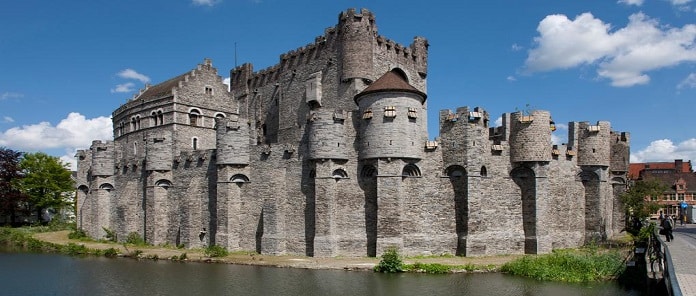
This hugely impressive fort was once the grand home of the counts of Flanders who took their inspiration for castle-building from the bulky castles the Crusaders built in Syria. Today, Gravensteen is one of Europe’s best surviving examples of a moated fortress and has been incredibly well-preserved. Its strong and impressively thick and high walls soar up from the waters of the river Lieve right in the middle of the old town of Ghent, rising above the rooftops of the surrounding streets. Inside, the vast arched halls and chambers contain exhibits of medieval life, but it’s the castle’s architecture itself that is the real star of the show. Climb up the staircase to the roof for panoramic views across town.
